- Home
- Belva Plain
Crossroads Page 4
Crossroads Read online
Page 4
She always knew when he was coming, because Cassandra’s eyes would flash in a way they never did normally. Sometimes, when she was getting dressed to go out with him, she would look at herself in the mirror and she wouldn’t like the dress she had chosen or the earrings, and she would change them at the last second—a phenomenon totally out of character for one as decisive as she. Then she would have to rush down the stairs in a clatter of high heels so she would not be late when Walter arrived—the rushing was also totally out of character. There would be an uncharacteristic note of excitement in her voice as she greeted Walter, told the maid to get her wrap out of the closet, and went out into the night with him. Sometimes his hand would be under her elbow guiding her gently down the front steps, sometimes it would rest for a second on the small of her back, also for guidance. And Gwen, young as she was, could sense that there was something special in that touch of hand to body.
There were times when Walter and her mother did not leave the house right away, when they only had plans for dinner in a local restaurant, or at the home of friends. Then Walter would take off his coat and Cassandra would lead him to the living room where they would have drinks in front of the massive fireplace and eat the little canapés the cook had labored over. Or they would take their drinks into one of the cozier rooms, the library or the sitting room. The sound of them, of their laughter and talk, would echo down the halls of the house.
Gwen had been introduced to Walter during one of these interludes. She had been told he was a special friend of Cassandra’s and she had believed it. But she hadn’t really talked to him—not until the day under the trees.
When he appeared there in her refuge, Gwen had looked at him, seeing once again the kindness in his face and the warmth in his smile. Walter Amburn radiated warmth, everyone seemed to feel it. Now he was bending over so that Gwen and he were eye to eye.
“I hope I’m not intruding,” he’d said gently. “Your nanny said I might find you here. I understand this is your special spot.”
Shy, Gwen had nodded silently.
Walter had looked appreciatively at the canopy of green branches overhead, the velvety moss, and the dappling of sunshine and shadow on the grass. “I can see why,” he said. “May I sit down?”
Gwen nodded again, and in spite of his nice slacks and the possibility of grass stains, he settled himself on the ground next to her. He began talking to her, but not in the silly way that adults usually talked to children. Walter told her how the moss that carpeted the earth under them had grown, and he showed her how to tell how old a tree was. And before Gwen knew how it had happened she was telling him about the patch of sunshine a few feet away where the wild daylilies grew every summer and about the squirrels and the chipmunks she watched. She mentioned that she’d made up a story about this place that was so magical to her, and he asked her if she would mind telling it for him. It was a rather long and rambling saga, she would realize later when she got better at storytelling, but Walter had listened intently and thanked her when she was finished.
Then she asked him why he had come to sit under her trees, because it wasn’t something adults usually did, especially when they weren’t dressed for it.
“I thought we should get to know each other a little,” he’d said, “because I’m going to be in your life for a long time. You see, I’m going to be marrying your mother. I hope that meets with your approval.”
And Gwen had thought about the shine in Cassandra’s eyes and the way she ran down the stairs to meet him. And she had thought about the way Walter had listened to her story. And she said, “Yes. I think that will be fine.”
“Thank you,” he’d said gravely. “That’s a big relief to me.”
* * *
It had been better than fine. The advent of Walter had been the beginning of a new relationship between Gwen and Cassandra. The chill Gwen had always felt had begun to warm; the distance had been lessened. Her mother was a happier person now, and the happiness poured over everything and everyone around her.
And then, out of the blue, came the bedtime story. Gwen was never really sure how or why Cassandra decided that she wanted to read to her daughter every night. She suspected that in some way Walter had been behind it, although she didn’t know that for sure. It would have been like him to point out to his wife that Gwen was a child who loved stories and Cassandra herself was a voracious reader. It was Walter’s instinct to bring people together, and to bring out the best in them. Or maybe Cassandra herself was looking for something she and her daughter could share; maybe she felt the lack of closeness between them and was looking for a way to reach out. Maybe she was trying to expand Gwen’s mind. Maybe it was a little of both.
The idea of Cassandra Wright cuddling up with her little daughter every night for a cozily domestic reading of a bedtime story was so impossible that Gwen had never even dreamed of such a thing. But one evening as she lay in bed and Sarah turned on the television that would lull her to sleep, Cassandra appeared in her room with a book in hand.
“I’ve brought a novel I thought we might enjoy together,” she said as she snapped off the TV. “It’s called Heidi. Your pediatrician says it’s too advanced for a child of your age, but I’m not sure he knows how very bright you are. It was one of my favorite stories growing up, and in any case, I’m afraid I couldn’t bear reading some of the pap they write for children these days.”
So there were no rhyming kittens or fairy princesses saved by white knights for Gwen. She didn’t care. The bedtime story became her favorite part of her day. Propped up against her pillows, bathed and bundled into her nightclothes, she would wait for Cassandra to come in—often dressed for an evening out—sit on a chair at the side of the bed, and read.
Gwen had no trouble following the story. She and her mother laughed together at Fräulein Rottenmeier; they sighed over the mountains of Switzerland together, and the wildflowers. For several weeks the only thing Gwen wanted to eat were grilled cheese sandwiches, and the cook had instructions to oblige her—after all, cheese melted on a chunk of bread over the fire was what Heidi and her grandfather ate.
The bedtime story had been a turning point; and over the next few years Gwen and Cassandra would find other interests and passions they shared. Gwen developed a taste for the classical music her mother adored: Beethoven, Schubert, and Mozart. They listened to Cassandra’s favorite recording of La Bohème together and followed along with the libretto. Both mother and daughter had a deep love of animals, and a need for nature. They felt the same sense of loss when old trees were cut down and beautiful marshlands were drained for yet another ugly housing development. Both of them had a sense of justice and fair play. Cassandra understood Gwen’s need for quiet and time alone; Gwen respected her mother’s reserve and need for order. Perhaps it wasn’t a perfect relationship—but where are those found? As far as Gwen was concerned it was much better than it once had been.
* * *
Of course she still had her scar tissue; that kind of thing never totally disappears, and there were times when she was angry—usually when she realized once again that she would never fit in with other youngsters her age. Those were the times when she hated being a Wright, hated her own quirky mind, and hated the superior being who was her mother.
“Yes, you’re different,” Walter said one day when they were having iced tea in his studio. Walter was an artist, very much in demand as a portrait painter. Gwen thought it was because he always seemed to find whatever it was that made his subject special and somehow managed to put that on the canvas. He had a gift for liking people. “I know being different isn’t fun now, when all you want to do is be one of the pack, but you have to look at the bigger picture. Most of the world’s great ones were odd ducks, as you call yourself. They couldn’t fit in so they had to discover something else to get them through, some great passion. They became our geniuses, our poets and composers, our philosophers and scientists. I believe passion is what brings joy. Not always happiness, you und
erstand, that is a toss of the dice, but joy will always come from finding what you love to do and doing it.” He’d paused for a second and then he’d smiled his warm smile. “In any event, that’s what this odd duck keeps telling himself.”
Gwen had thought for a moment and then she said, “When you were talking about the great ones, you didn’t mention business people like my mother. Do you think they can have a passion for what they do too?”
Walter had laughed. “Yes, of course they can; your mother is proof of that. She is a genius in the way she handles her company. I guess I don’t think of including business in the great endeavors of the world, because I can’t imagine doing what Cassie does every day. But I do respect anyone who can.” He looked at her then. “And I hope you do too, Gwen. It’ s very important to respect other people’s passions.”
It was Walter who had put into proper perspective the odd-duck notions Gwen had had as a child. “You’re in good company,” he said. “That question you asked about the butter box? What you were really talking about was the concept of infinity. Men have been puzzling over that one since the Greeks. As for questioning the reality of your own existence, a brilliant man in the seventeenth century named Descartes grappled with that. He came to the conclusion that the fact that he had the capacity to think enough to ask the question was proof that he existed. He said ‘Cogito, ergo sum’ meaning ‘I think, therefore I am.’ It’s one of the more famous ideas in Western thought, so you see, you’re on the same page with Descartes. Personally, I think you should be quite pleased with yourself.”
When Walter said things like that to Gwen, it didn’t make up for snubs on the playground or other children giggling when she said something they thought was weird. But it helped.
And when there were clashes between Gwen and Cassandra—and inevitably there were, because they were mother and daughter, and because each in her own way was strong—Walter was the one who made peace. Walter, who appreciated them both, could point out to Gwen that Cassandra was actually showing her affection when she seemed domineering and overbearing, and he could tell Cassandra that Gwen was merely being determined like her mother when she dug in her heels so stubbornly. There were times when Gwen couldn’t believe how lucky they were to have Walter. She knew her mother felt the same way.
But then there were other times. Times when no matter what anyone said—including Walter—Gwen felt she was not pretty enough, or smart enough. Times when she felt . . . no, she knew she just wasn’t good enough.
* * *
Gwen shifted her position on the stump and a chipmunk fled, frightened, into his hole. Poor thing! I wonder what’s going through his mind? Does he have a mind in the sense that I understand that? Does he think the way I do? Is it the same kind of process? I’m sure a biologist—a scientist with graphs and microscopes for measuring things exactly—would say no. But do the scientists have all the answers? I’m afraid I don’t think so. If you look at it, that chipmunk and I are the same. We both want to be fed; if it’s too cold or too hot we don’t like it; we want to be comfortable. And we both get frightened. We are afraid of different things, but it is the fear itself that neither of us wants. We are afraid of being afraid.
So what does the chipmunk think about? When I was a child I used to ask that. I used to wonder why animals don’t fight the way humans do. They do fight, of course, but it’s for important things like food or territory or mating rights. I’ve never seen a squirrel go after a rabbit just to inflict pain. Come to think of it, I’ve never seen a squirrel fight a rabbit. At least, not here. I guess they have enough food and shelter here.
Why do people fight? Why do we say nasty things to each other, or behind each other’s back? Or perhaps just stare and say nothing? Why do we want to hurt each other? And I’m not exempt from that. I get angry. God knows I get jealous. So what are we all thinking? Why do we do the things we do?
When a woman takes in a baby, does she do it because she wanted one so desperately? Was she happy because she got to make a choice? That’s what most adoptive parents say—“I was lucky because I got to choose you and you were the perfect baby for me.” My mother has never said that. She cares for me, I feel it. But she’s never said, I loved you from the moment I saw you. You were the only child I could ever dream of wanting.
And what happened to the woman who gave birth to me? Why did she give me up? What about my father, did he agree that I should be given away? Did he even know about me? Are they still out there somewhere? Why am I thinking about this? Why does everything always lead me back to this question? Who were my birth parents, and what were they like? I can’t help feeling that Mother knows something about them, but she won’t admit it. She doesn’t even want to talk about it. If I were to ask her she’d say, Gwen, why go into all of that? Once when I pushed her about it, she said, When I adopted you, I didn’t see any reason to ask a lot of questions about your past. But she was picking her words very carefully. Mother doesn’t lie, not really, but when she’s not telling the whole truth she’s careful with her words. Or maybe I just want to believe she knows more than she does. Maybe it’s just wishful thinking on my part.
Such were Gwen’s thoughts, and she did the best she could with them.
Chapter Seven
There was a big bay window in the back of the living room, Cassandra liked to take her early morning coffee there where she could watch the hill behind the house as it slowly came alive. So she had seen Gwen make her solitary journey to the place beneath the trees which had been her refuge since she was a child.
And in so many ways she still is a child. She is so vulnerable, so defenseless. She will let herself be intimidated by a flashy little piece of work like that Jewel Fairchild from the glassworks. That girl is all surface and show, but Gwen doesn’t see that. She felt uncomfortable around her because Jewel is pretty . . . all right, she’s more than pretty, she’s beautiful . . . and she has confidence. The kind of mindless confidence Gwen will never have because she’s too smart and sensitive. Even when she was ten months old, the first time I saw her . . . there was something diffident about her. As ironic as it was, I remember thinking that she reminded me of myself.
* * *
Cassandra turned away from the bay window. She didn’t like to live in the past, but there were times when her mind went back. Back to her first marriage and her first husband. Back to the carnage she could still imagine after all these years . . . and to the opening sentence of the headline story in a New Orleans newspaper. A sentence Cassandra could still recite by heart: After a horrendous collision between a car and a truck, after the shattering of glass, the roar and rumble and the screech of brakes, a man and a woman are dead tonight.
The news had flown quickly from Louisiana to New England, and to Cassandra Wright. Her husband, whose last name no one could quite remember, was dead. He’d been in New Orleans trouble-shooting for the Wright Glassware outlet he’d opened there, and at the time of the accident he’d been giving one of the outlet employees a lift home.
The fact that such pain had fallen upon the Wright Glassworks family had not made it any more or any less tragic than any other people’s disasters, but it certainly had made it a bit more interesting in Wrightstown. For Cassandra, the pain was not what people might have expected. In some ways it was less, and in others it was much more. Or, it would become so.
Her husband’s name, the one that everyone forgot, was Bradford Curtis Greeley. Cassandra had married him for a variety of reasons; several of them, she had realized later, had not been good ones. But she was a woman who stood by her commitments and at the time of his death they had been together for ten years.
Originally she had married him because she loved him. But love for her in those days had not been a simple thing. From the time she had reached puberty her father had warned her against fortune hunters.
“You will be prey to them, Cassie,” he’d said. “Your private assets are considerable—but it is the glassworks that is the rich prize.
There are many unscrupulous men who would do anything to gain control of it.”
It never seemed to occur to Father that he was suggesting that no man would pursue—or marry—Cassie for herself. Or that it would be so distasteful to marry her that it would come under the heading of “doing anything.” But that was certainly the way Cassandra heard it.
“If only you had a brother,” Father had sighed. And there it was, the big disappointment of his life. He did not have a son. There was no male heir to take over the running of the glassworks and protect dear little Cassie, who didn’t have the brains to avoid allying herself with the grasping lothario of his nightmares.
“If your mother hadn’t died so young . . .”
But Mother had died when Cassie was just a toddler, and Father had not remarried, and Cassie was an only child.
“I could structure a trust to handle your affairs but your great-grandfather and your grandfather were most specific about their desire that the glassworks not be managed by banks and trust officers.”
Thank you, Great-Grandfather and Grandfather, Cassandra had thought.
But in spite of her attempts to see the humor in her situation, Father’s warnings about fortune hunters had borne fruit. By the time Bradford came into Cassandra’s life, she was twenty-eight years old, and not only single, but a virgin.
Her father hadn’t trusted Bradford—even though he had hired the young man to head up the woefully dated sales division at Wright Glass works.
“A bit too slick for my taste,” he’d said of his new employee. “A bit too much of the snake oil salesman. Although that may be what one wants in a ‘marketing man.’ ” Father had been suspicious of newfangled business disciplines and labels. “Give me a man who has come up through the production line,” he liked to say.

 The Golden Cup
The Golden Cup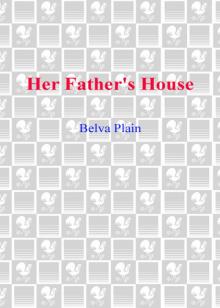 Her Father's House
Her Father's House Whispers
Whispers Crescent City
Crescent City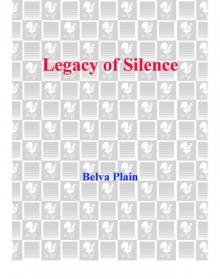 Legacy of Silence
Legacy of Silence Crossroads
Crossroads Promises
Promises After the Fire
After the Fire Tapestry
Tapestry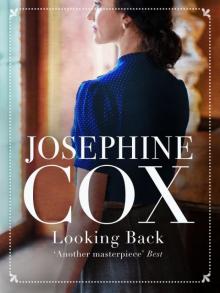 Looking Back
Looking Back Heartwood
Heartwood The Carousel
The Carousel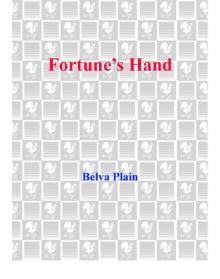 Fortune's Hand
Fortune's Hand Homecoming
Homecoming Random Winds
Random Winds Harvest
Harvest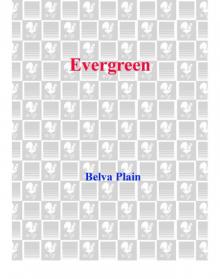 Evergreen
Evergreen Treasures
Treasures The Sight of the Stars
The Sight of the Stars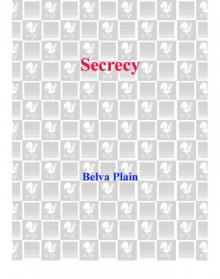 Secrecy
Secrecy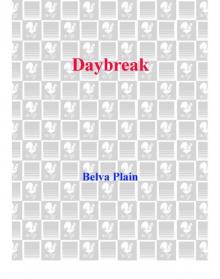 Daybreak
Daybreak Eden Burning
Eden Burning